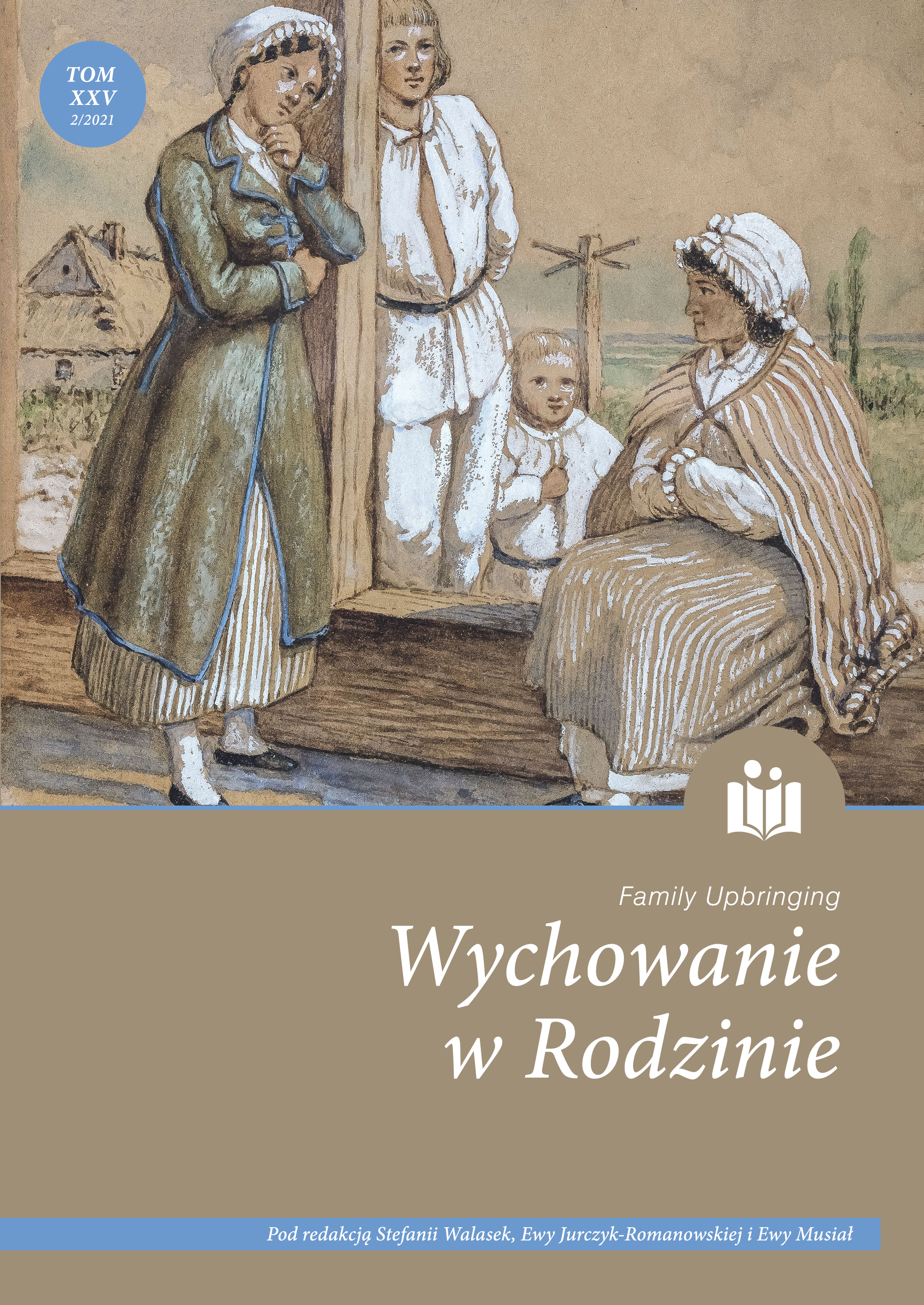Dyrektywa o godzeniu ról zawodowych i rodzinnych – czy okaże się punktem zwrotnym dla polityki rodzinnej w Polsce?
The EU work-life balance directive – will it be a game changer for family policy in Poland?
Author(s): Agnieszka Kozłowska, Łukasz P. RatajczakSubject(s): Social Sciences
Published by: Zakład Historii Edukacji w Instytucie Pedagogiki Uniwersytetu Wrocławskiego
Keywords: work-life balance; work-life balance directive; parental leave; father’s leave; gender equity theory; gender equality; educational policy
Summary/Abstract: Introduction. Family is one of the most important values in human life, which is proved by the findings of various polls, reports, and research. However, its structure and models are subjects of constant changes which are connected with demographic, economic, and social developments of society. One of the most important factors of the transformation of family life models is the emancipation of women and men from their traditional gender roles. Women have crossed boundaries of gender stereotypes through their long-standing presence in the labour market, building their economic independence and performing gender-non-stereotyped jobs, which has been addressed in law at the European and national level. Emancipation of men from their stereotypical gender roles started later and is connected with men entering into family life and their stronger engagement in domestic and parental obligations and tasks. The symmetry between women’s and men’s emancipation is crucial for a better work-life balance in family life, and work-life balance is indicated as one of the most important factors of stability and good condition of the family. As such, work-life balance, and gender equity should be supported at the national level through legislation and other instruments of family policy, e.g., through education. Aim. The main aim of the article is to analyse how the new legislative tool of gender equality in the labour market – The EU directive on work-life balance from 2019 - may influence changes in family policy in Poland and educational policy in this field. The analysis is focused mainly on family life models (the models of gender roles and domestic labour division) as a key factor directly connected with possibility of gaining work-life balance in the family. Material and Methods. The material used in the study were legislative documents on parental leave at the levels of the European Union and Poland: the EU work-life balance directives dating from 2010 (2010/18/EU) and 2019 (DIRECTIVE (EU) 2019/1158) as well as the EC proposal of the last one from 2017- COM (2017) 253 final, COD: 2017/0085, and the consolidated version of Kodeks pracy [the Labour Code], Dz. U. 1974 Nr 24 poz. 141, which was a source of respective provisions for Poland. The method used in the study was document analysis. Key provisions were extracted from chosen legislative acts and then analysed from a gender perspective, using as a reference gender equity theory. Individual vs. family character of the right to leave, its non-transferability vs. possibility of flexible transfer of leave between parents, high vs. low levels of payment and access to flexible working arrangements vs. fully engaging work, were used as a refence characteristics of the analysis. Results. Document analysis used in the study showed that both the European Commission proposal of the work-life balance directive dated in 2017 as well as its final version from 2019 – have had provisions which may effectively support gender equity and enhances engagement of men in their role of fathers. All the traits of parental leave used in the key to analysis – individual right to leave, non-transferability, high level of payment, and flexible working arrangements - were present there. The previous version of the directive, dating from 2010, did not have appropriate solutions or they were not obligatory. The Polish legislative act, from which parental leave provisions were extracted – Kodeks pracy [the Labour Code] – proved to be even less gender equal. Leave in Poland turned out to be legally based on the mothers’ entitlement to leave; it is also paid less than in the original European Commission’s proposal and is fully transferable between parents.Conclusion. Provisions of the EU work-life balance directive from 2019 are legislative instruments, which may enhance the process of emancipation of women in the labour market and emancipation of men in the family life. Implementation of the directive into national law in Poland is crucial for gender justice and the stability of the family, as other studies show that work-life balance and the engagement of men into domestic and parental obligations increases the probability of having a second child. Low TFR (Total Fertility Rate) and a decreasing number of marriages in Poland may be connected with wrongly addressed family policy, focused on supporting the traditional model of the family which is exercised by a decreasing percentage of families. Inadequacy of family policy is in line with a lack of education on connections between gender equality or gender equity and the stability of the family. In this respect, changing the national curriculum framework for Poland is an important challenge for the educational policy in the country. Complementing the content of the national curriculum framework and then school curriculum and handbooks, with gender perspective, may help to eradicate gender stereotypes which seem to be major obstacle in both women’s and men’s emancipation. Family needs gender equity for its stability and higher number of children. This fact should be noted by policy makers to better address social policy towards family.
Journal: Wychowanie w Rodzinie
- Issue Year: XXV/2021
- Issue No: 2
- Page Range: 287-304
- Page Count: 18
- Language: English

